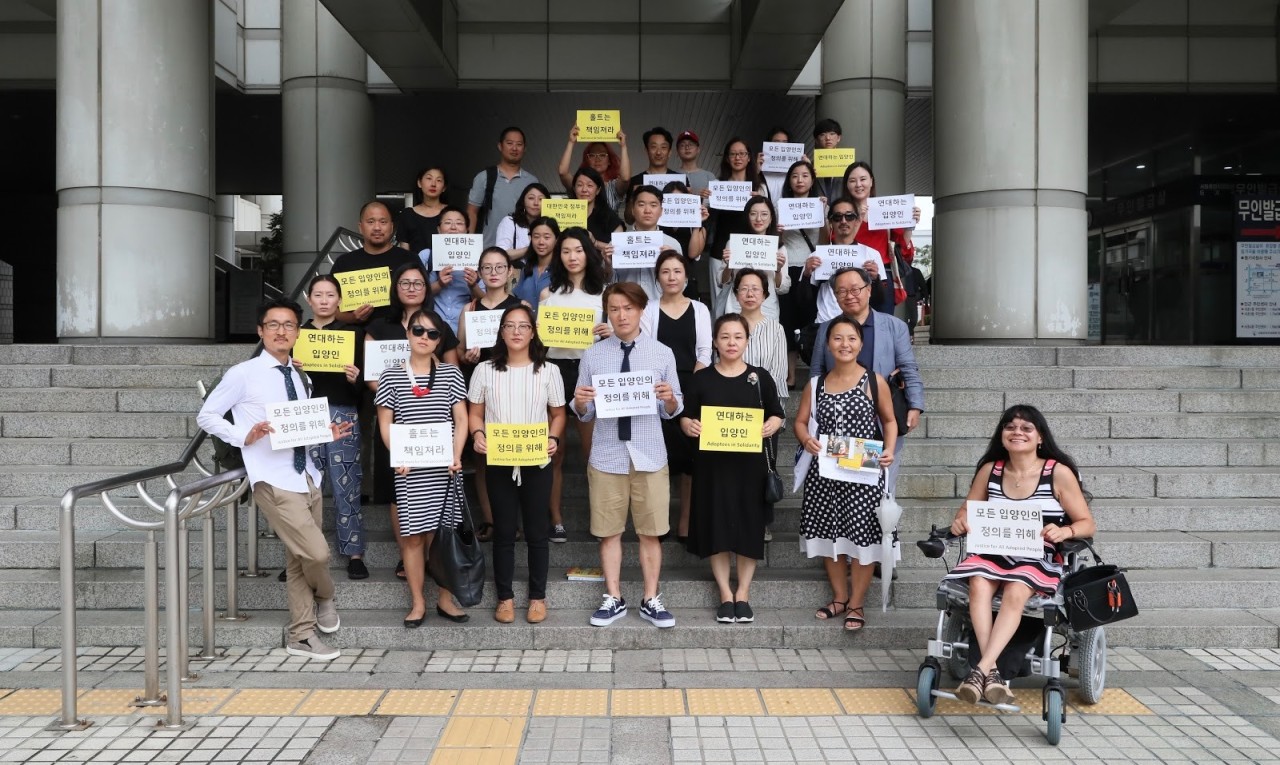The presiding judge in the Seoul Central District Court opened session Tuesday by noting the unusual audience as the small courtroom overflowed with over 60 South Korean-born international adoptees and adoptee rights advocates.
The hearing was the first in a landmark lawsuit filed by deported Korean American adoptee Adam Crapser against the Korean government and Holt Children’s Services.
Crapser, adopted through Holt at age 3, was abused by two sets of adoptive parents, neither of which filed for his United States citizenship. Crapser was later imprisoned for burglarizing his adoptive parents’ home to retrieve a Bible and a stuffed toy from his time in Korea. He later faced separate convictions for possession of a firearm and assault.
Following his time in jail, Crapser rebounded, starting businesses and a family. He was a stay-at-home father of three in 2015 when a green card application uncovered his previous convictions, resulting in his deportation. He arrived in Seoul in 2016.
Crapser, now 44, filed a lawsuit claiming “gross negligence” by Holt and the Korean government.

Adoptee rights activists and allies gather in support of Adam Crapser (front, center) at the Seoul Central District Court on Tuesday after the first hearing in Crapser’s lawsuit. (Photo courtesy of Jes Eriksen)
At Tuesday’s hearing, Crapser’s lawyer argued that Holt had failed to meet its post-adoption obligations as Crapser was abused and ultimately lacked citizenship. The lawyer also criticized a lack of government oversight concerning fraudulent paperwork aimed at expediting the adoption process, as well as the practice of “proxy adoptions” involving lax screening with no requirement for adoptive parents to travel to Korea.
Holt’s lawyer argued that the organization’s motivation for facilitating adoptions was helping children, not profit. The representative added that the statute of limitations on Crapser’s adoption had passed, regardless of Holt’s responsibility.
The Korean government’s representative additionally stated that the adoption system at the time of Crapser’s adoption was fully constitutional.
The court adjourned without setting a date for the next hearing as the parties gather evidence.
Crapser’s situation is not unique. Less than two years ago, a deported adoptee named Phillip Clay ended his own life in Korea as a result of mental health issues worsened by the isolation of living in an unfamiliar country. Advocacy group the Adoptee Rights Campaign estimates 35,000 adoptees in the US lack citizenship and are at risk of deportation.
In the US, groups such as Adoptees for Justice, KoRoot and the National Korean American Service & Education Consortium are mobilizing with the aim of passing a law retroactively granting citizenship to all adult international adoptees and allowing deportees like Crapser to return home.
By Liza Hafner (
lyhaf@stanford.edu)
Intern reporter






![[KH Explains] How should Korea adjust its trade defenses against Chinese EVs?](http://res.heraldm.com/phpwas/restmb_idxmake.php?idx=645&simg=/content/image/2024/04/15/20240415050562_0.jpg&u=20240415144419)